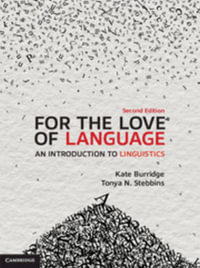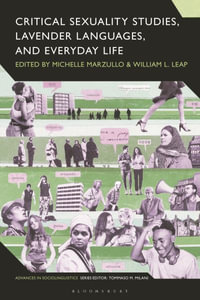"In multilingual Europe thorough studies on legal language are increasingly needed, especially as a result of recent and prospective enlargements of the European Union. This multifaceted volume is an important contribution to the studies of EU languages, and it can be warmly recommended for a wide readership of both lawyers and linguists." - Heikki E.S. Mattila, University of Lapland, Finland
"Globalization has changed the relation of law to language. A bewildering example of this change is the case of the EU: how to maintain a "dialogue" engaging legal translation with 24 different languages? Through their collective efforts, Sarcevic and her contributors, via a wealth of multidisciplinary perspectives, offer both a gallant and inspiring analysis of the EU's labours of Hercules in its search for establishing a sui generis legal culture and language." - Jean-Claude Gemar, Universite de Montreal, Canada
"This book gives a range of insights into the process by which the EU makes laws that have to work in the same way in 24 languages and in 28 Member States. It highlights many of the paradoxes and tensions inherent in that process and the problems confronting those taking part in the process. Apart from offering some practical solutions to those problems, it should contribute to a better understanding of the final product of that process, EU legislation itself." - William Robinson, Institute of Advanced Legal Studies, University of London, UK
"Legal translation has become the glue that binds the EU, with its 24 official languages and myriad of legal and social cultures. This volume collects work from among the very best writers who study the successes and the problems of the daunting enterprise of ensuring that people who do not understand one another live in a legal culture understood by all. It is a wonderful assembly of essays that should be must reading for all who study the EU, whether as lawyers, linguists, translators, political scientists or from other disciplines. In fact the book is so engaging that even those with a casual interest in the similarities and differences among languages will find it to be a very good read." - Lawrence M. Solan, Brooklyn Law School, USA

























